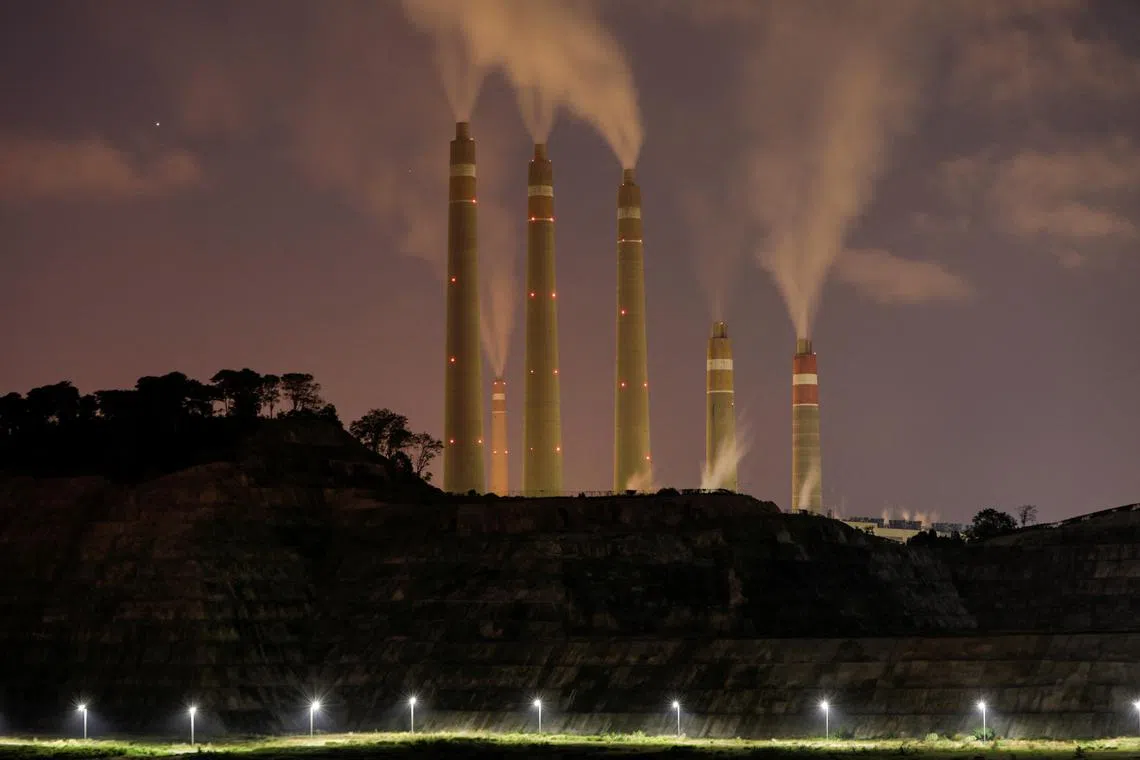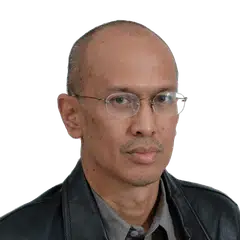Plan to let religious groups operate coal mines in Indonesia criticised by observers, ministers
Sign up now: Get ST's newsletters delivered to your inbox

Indonesia is the world’s largest exporter of thermal coal, which is used in power generation.
PHOTO: REUTERS
JAKARTA - A plan floated by the Indonesian government to amend regulations so that religious organisations can get permits to operate coal mines has been met with growing criticism from observers, with a Greenpeace campaigner calling it “terrifying”.
The plan has also faced opposition from several Cabinet ministers under President Joko Widodo who expressed their concern that mass organisations, let alone religious groups, would not have the required technical capacity and financial strength to develop mines.
The radical idea was first floated at a Cabinet ministers’ meeting earlier in 2024 by Investment Minister Bahlil Lahadalia, with the aim of improving economic equality.
The argument was that Indonesia’s rich natural resources should not only be enjoyed by established business groups, according to Tempo weekly magazine.
Indonesia is the world’s largest exporter of thermal coal,
South-east Asia’s largest economy received US$34.59 billion (S$47.2 billion) from coal exports in 2023, according to the national statistics agency.
Tempo reported in its latest edition on April 14 that Energy and Mineral Resources Minister Arifin Tasrif had at first opposed Mr Bahlil’s idea, but became agreeable to the plan after the draft regulation was amended to limit the permits to only religious organisations, and to cover only coal mining.
The earlier draft would have allowed any mass organisation, with the mining concessions covering other minerals including nickel, Tempo said.
A spokesman for the investment ministry did not respond to queries from The Straits Times over the issue.
Mr Putra Adhiguna, director at Jakarta-based Energy Shift Institute, said that a few years ahead of the election, President Widodo made a promise to Indonesia’s largest Islamic organisation Nahdlatul Ulama (NU) to give mining concessions to help NU members.
“Jokowi made a political promise, and now he is obliged to deliver on that promise,” Mr Putra told ST, using the moniker by which Mr Widodo is widely known.
NU, with an estimated 80 million members, is widely believed to be an important player in deciding Indonesia’s election, which is why it is being wooed by political elites.
While the presidential and legislative elections were held in February,
The unprecedented possibility that religious groups could get the chance to develop mines comes after the Indonesian government under President Widodo started a major drive in 2022 to revoke mining concessions granted to private parties which, in the meantime, had allowed their projects to remain idle.
ST understands that NU and second-largest mass organisation Muhammadiyah were recently briefed privately by government officials about the possibility of the revoked concessions being reissued to them.
Muhammadiyah was not keen to follow up but the NU took interest, according to political sources.
Mr Bahlil has a mandate to lead a government task force to revoke mining concessions considered idle.
Since 2022, he has revoked hundreds of mining permits for various concessions across Indonesia and has planned to reissue the concession rights to parties keen to develop the mines.
Many were permits to dig up thermal coal, including those in East Kalimantan.
Some of the mining projects were left idle because the concession holders failed to find financiers to help with the development.
Forest campaigner Iqbal Damanik of Greenpeace claimed that the move to dangle these potentially lucrative mining concessions to the socially and politically influential groups was clearly a lobbying effort by the government to get them to refrain from criticising government policies.
Members of the NU have joined various political parties, including the National Awakening Party (PKB) which accounts for about 10 per cent of the 580 lawmakers in the national Parliament.
Muhammadiyah, which has more than 50 million members, has as its political wing the National Mandate Party (PAN), currently holding about 8 per cent of Parliament seats.
ST understands that many senior members of Muhammadiyah, including academics and successful businessmen, have been more resistant to efforts by the Widodo government to woo them.
Muhammadiyah is known for running established universities, hospitals and pilgrimage travel agencies, while NU’s top members are mainly involved in small and medium-sized businesses.
Greenpeace’s Mr Iqbal called the plan to grant mining concessions to religious organisations “terrifying, very peculiar and not well-thought-out”.
He said the mining business is complex and requires heavy equipment. It is a far cry from general trading, in which many NU members are engaged.
“Mining has potentially huge negative environmental impact if not managed well,” Mr Iqbal told ST.
He said the NU would likely find a third party to do the job for them, which might create a legal issue as a concession is not transferable.
Energy Shift Institute’s Mr Putra said allowing mass groups into the mining business would be an unprecedented move, and he sees political motivation rather than an economic one as being the main drive behind it.
He also sees it as an attempt to address economic inequality – as the government claimed – by introducing a new inequality.
“Mass organisations typically represent certain groups in the diverse Indonesian society, and giving mining concessions to some of them would create a sense of inequality and jealousy,” Mr Putra told ST.



